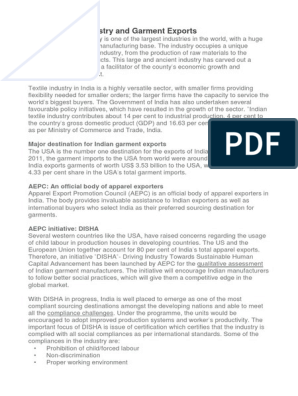0% found this document useful (0 votes)
67 views11 pagesWrap PART 2 Aw Train
WRAP is an independent organization dedicated to promoting safe and ethical manufacturing around the world through facility certification. It has certified over 1,850 factories across 60 countries. WRAP is based on 12 principles covering compliance with laws and workers' rights. Facilities undergo an unannounced audit to be certified, showing compliance with the principles.
Uploaded by
Hanan ZayedCopyright
© © All Rights Reserved
We take content rights seriously. If you suspect this is your content, claim it here.
Available Formats
Download as PDF, TXT or read online on Scribd
0% found this document useful (0 votes)
67 views11 pagesWrap PART 2 Aw Train
WRAP is an independent organization dedicated to promoting safe and ethical manufacturing around the world through facility certification. It has certified over 1,850 factories across 60 countries. WRAP is based on 12 principles covering compliance with laws and workers' rights. Facilities undergo an unannounced audit to be certified, showing compliance with the principles.
Uploaded by
Hanan ZayedCopyright
© © All Rights Reserved
We take content rights seriously. If you suspect this is your content, claim it here.
Available Formats
Download as PDF, TXT or read online on Scribd
/ 11











































































































